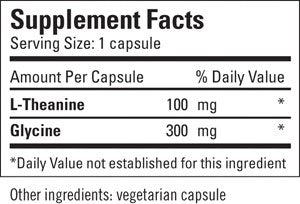1
/
of
2
L - Theanine 200mg 60 caps by Metabolic Maintenance
L - Theanine 200mg 60 caps by Metabolic Maintenance
L-Theanine is a non-protein amino acid found naturally in the green tea plant (Camellia sinensis).
It is an effective GABA precursor and supports healthy relaxation without drowsiness. Because it can cross the blood-brain barrier, L-theanine helps increase brain dopamine levels and helps support a normal immune system. *
Regular price
$70.00 USD
Regular price
Sale price
$70.00 USD
Unit price
/
per
Tax included.
Shipping calculated at checkout.
Couldn't load pickup availability
Share




